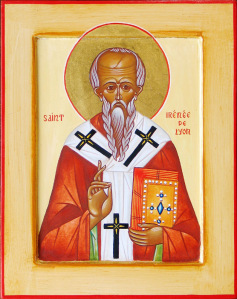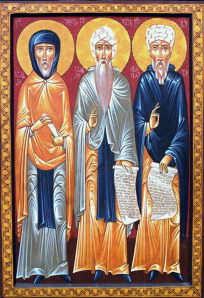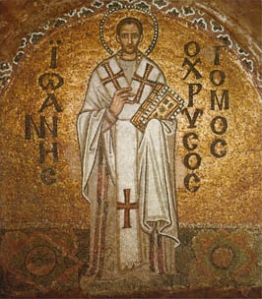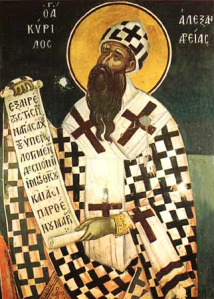 Christ was carried into the temple, being yet a little child at the breast.
Christ was carried into the temple, being yet a little child at the breast.
And the blessed Symeon being endowed with the grace of prophecy, takes Him in his arms, and filled with the highest joy, blessed God, and said:
“Lord, now lettest Thou Thy servant depart in peace according to Thy Word, for mine eyes have seen Thy Salvation, Which Thou hast prepared before the face of all the nations, the Gentiles’ light for revelation, and a glory of Thy people Israel.”
For the mystery of Christ had been prepared even before the very foundation of the world, but was manifested in the last ages of time, and became a light for those who in darkness and error had fallen under the devil’s hand.
These were they “who serve the creation instead of the Creator,” worshipping moreover the dragon, the author of evil, and the impure throng of devils, to whom they attach the honour due unto God: yet were they called by God the Father to the acknowledgment of the Son Who is the true light.
Of them in sooth He said by the voice of Isaiah, “I will make signs unto them, and receive them, because I will ransom them, and they shall be multiplied, as they were many: and I will sow them among the nations, and they who are afar off shall remember Me.”
For very many were they that were astray, but were called through Christ: and again they are many as they were before; for they have been received and ransomed, having obtained as the token of peace from God the Father, the adoption into His family and the grace that is by faith in Jesus Christ.
And the divine disciples were sown widely among the nations: and what is the consequence? Those who in disposition were far from God, have been made near. To whom also the divine Paul sends an epistle, saying, “Now ye who some time were afar off have been made near in the blood of Christ.”
And having been brought near, they make Christ their glorying: for again, God the Father has said of them, “And I will strengthen them in the Lord their God, and in His Name shall they glory, saith the Lord.”
This also the blessed Psalmist teaches, speaking as it were unto Christ the Saviour of all, and saying, “Lord, they shall walk in the light of Thy countenance, and in Thy Name shall they exult all the day, and in Thy righteousness shall they be exalted: for Thou art the glorying of their strength.”
Cyril of Alexandria (c. 376-444): Commentary on St Luke’s Gospel, Sermon 4 (on Luke 2:25-35).
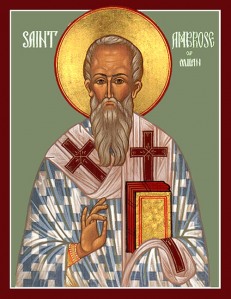 Let your face shine on your servant, and teach me your precepts.
Let your face shine on your servant, and teach me your precepts. 